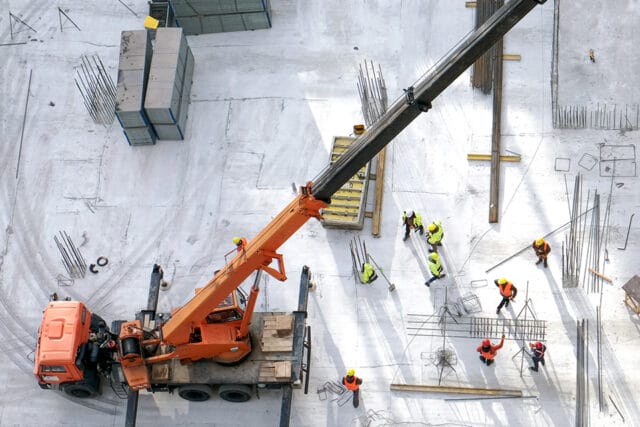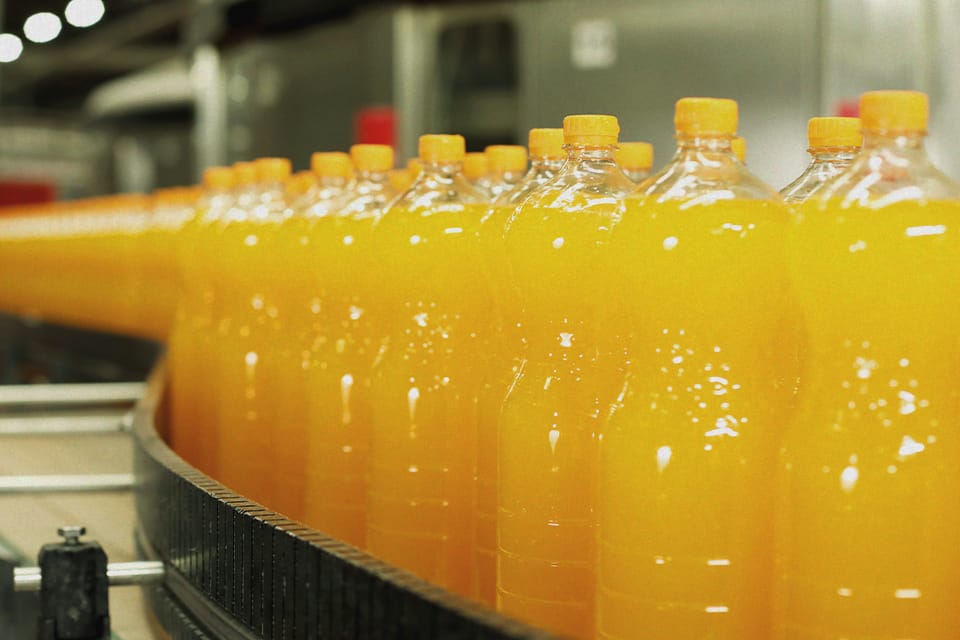
Resilience in Food Manufacturing: Adapting Safety to a Changing Climate

Food manufacturing faces profound challenges from climate change, disrupting operations and requiring innovative approaches to ensure safety and resilience. As the global community confronts climate impacts, industries such as food manufacturing experience significant disruptions to processes and supply chains. This article explores how climate change affects food production and offers strategies for contractors to enhance climate-resilient safety practices.
Impact of Climate Change on Food Manufacturing
Climate change poses challenges for food manufacturing, impacting raw material availability and production processes. Rising temperatures reduce agricultural yields by altering climate patterns, lowering crop viability and quality. Extreme weather events, including droughts, floods, and hurricanes, disrupt planting, harvesting, transport, and storage. These disruptions create vulnerabilities in supply chains, forcing food manufacturers to adapt sourcing strategies to maintain production.
The increased prevalence of pests and diseases also affects food manufacturing. Warmer temperatures allow pests to invade previously unsuitable regions, threatening crops and livestock health. This change increases production costs, as manufacturers need robust pest management strategies. Sustainable pest control methods, though effective, can be expensive and logistically challenging. Food manufacturing companies may also adopt genetically modified organisms (GMOs) resistant to climate impacts.
Water scarcity, caused by changing rainfall patterns and prolonged droughts, further disrupts food manufacturing. Limited water availability increases costs and affects ingredient sourcing consistency. Manufacturers must invest in technologies like water recycling systems and precision agriculture to reduce their water usage and ensure operational continuity.
Consumer behavior and regulatory pressures add complexity to food manufacturing challenges. Consumers increasingly prefer sustainably produced food, pushing manufacturers to adopt greener practices. Governments also enforce stricter policies, requiring reduced carbon footprints and sustainable operations in food manufacturing. Balancing these demands while remaining competitive requires significant innovation.
Disruption in Food Manufacturing Supply Chains
Food manufacturing depends heavily on complex global supply chains, which climate change disrupts. Unpredictable weather patterns alter growing seasons and impact agricultural productivity. Crops like cereals, fruits, and vegetables are particularly sensitive to temperature and precipitation changes. Supply chain disruptions lead to fluctuating prices, production delays, and adjustments in sourcing strategies.
As consumers prioritize sustainably sourced food, food manufacturing companies must adapt supply chains to meet these expectations. Changes include sourcing eco-friendly raw materials and adopting sustainable packaging. Though challenging, these efforts help manufacturers build resilient supply chains while aligning with consumer trends.
Safety Risks for Workers in Food Manufacturing
Climate change increases safety risks for workers in food manufacturing. Extreme heat poses immediate risks, such as heat stress and related illnesses. Many food manufacturing jobs involve physically demanding tasks in warm environments. Rising temperatures exacerbate these conditions, increasing accidents and reducing productivity. Employers must implement measures such as worker training, hydration breaks, and cooling systems to mitigate heat risks.
Chemical exposure also threatens worker safety in food manufacturing. Climate change increases pest activity, requiring more pest control measures that involve hazardous chemicals. Without proper safety gear or training, workers risk health issues from chemical exposure. Poor ventilation in manufacturing plants can worsen these risks, leading to respiratory problems and other concerns.
Supply chain disruptions caused by extreme weather create job instability and stress for workers. Sudden layoffs or increased workloads heighten stress levels, contributing to mental health challenges. Stress can increase workplace accidents as workers struggle to focus on safety protocols. Employers must prioritize mental health support and foster a safe, supportive work environment.
Shifts to sustainable practices and new technologies also introduce safety risks. For example, transitioning to energy-efficient equipment requires thorough training to prevent accidents. Food manufacturing companies must ensure that workers are well-prepared for changes in processes or equipment.
Best Practices for Climate-Resilient Safety Measures
To address climate challenges, contractors in food manufacturing should adopt proactive measures to enhance resilience. Key strategies include:
- Flood Mitigation Systems: Flooding poses significant risks to manufacturing facilities. Contractors should:
- Regularly inspect and reinforce building structures
- Develop efficient drainage systems
- Use flood barriers to protect key operational areas
- Heat Stress Prevention Programs: Rising temperatures threaten worker health. Key measures include:
- Installing cooling systems and providing shaded areas
- Ensuring access to drinking water and regular rest breaks
- Educating employees on heat illness prevention
- Emergency Response Plans: Comprehensive emergency plans help mitigate climate risks. These should include:
- Risk assessments tailored to specific climate threats
- Clear communication protocols for emergencies
- Regular evacuation drills and staff training
Preparing for Specific Climate-Related Risks
Food manufacturing contractors must tailor safety protocols to address regional climate risks. For example:
- Flooding: Design flood-resistant layouts and store hazardous materials securely.
- Heat Waves: Use energy-efficient cooling systems that operate sustainably in extreme heat.
- Drought: Implement water conservation techniques to maintain essential operations.
- Hurricanes and Tornadoes: Strengthen building structures and secure equipment to minimize damage.
Incorporating Climate Resilience into Contractor Management Systems
Embedding climate resilience into contractor management involves:
- Policy Development: Establish resilience guidelines for contractors.
- Procurement Processes: Require contractors to have robust climate resilience measures.
- Monitoring and Improvement: Continuously review and update safety protocols based on lessons learned.
Lessons Learned from Recent Weather-Related Disruptions
Food manufacturing has gained valuable insights from past climate-related disruptions. For example:
- Embrace Technology: Predictive analytics and IoT help forecast disruptions and automate response strategies.
- Collaborate Across Supply Chains: Sharing expertise strengthens collective resilience.
- Invest in Sustainability: Sustainable practices reduce vulnerability to climate impacts and improve competitiveness.
Conclusion
The food manufacturing industry faces significant challenges from climate change, affecting everything from safety practices to supply chains. By adopting proactive strategies, manufacturers and contractors can address immediate risks while building long-term resilience.
Ensuring worker safety, securing supply chains, and adapting to consumer demands are vital for navigating these challenges. Food manufacturing companies must also foster a culture of safety and sustainability to remain competitive in a changing world.
Through innovation and collaboration, food manufacturing can thrive despite climate-related disruptions. Embracing resilience and sustainability ensures manufacturers are prepared to meet future challenges while contributing to environmental conservation.
About the Author
James A. Junkin, MS, CSP, MSP, SMS, ASP, CSHO is the chief executive officer of Mariner-Gulf Consulting & Services, LLC and the chair of the Veriforce Strategic Advisory Board and the past chair of Professional Safety journal’s editorial review board. James is a member of the Advisory Board for the National Association of Safety Professionals (NASP). He is Columbia Southern University’s 2022 Safety Professional of the Year (Runner Up), a 2023 recipient of the National Association of Environmental Management’s (NAEM) 30 over 30 Award for excellence in the practice of occupational safety and health and sustainability, and the American Society of Safety Professionals (ASSP) 2024 Safety Professional of the Year for Training and Communications, and the recipient of the ASSP 2023-2024 Charles V. Culberson award. He is a much sought after master trainer, keynote speaker, podcaster of The Risk Matrix, and author of numerous articles concerning occupational safety and health.




